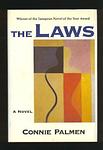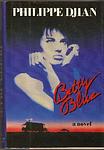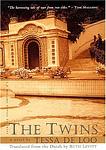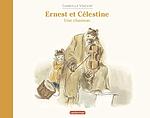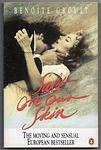The Greatest Dutch, French "Fiction" Books Since 1980
Click to learn how this list is calculated.
This list represents a comprehensive and trusted collection of the greatest books. Developed through a specialized algorithm, it brings together 290 'best of' book lists to form a definitive guide to the world's most acclaimed books. For those interested in how these books are chosen, additional details can be found on the rankings page.
Genres
Countries
Date Range
Reading Statistics
Click the button below to see how many of these books you've read!
Download
If you're interested in downloading this list as a CSV file for use in a spreadsheet application, you can easily do so by clicking the button below. Please note that to ensure a manageable file size and faster download, the CSV will include details for only the first 500 books.
Download-
1. The Lover by Marguerite Duras
"The Lover" is a poignant exploration of forbidden love, power dynamics, and colonialism. Set in 1930s French Indochina, it tells the story of a tumultuous and passionate affair between a 15-year-old French girl and her wealthy, older Chinese lover. The narrative delves into the complexities of their relationship, the societal norms they defy, and the inevitable heartbreak that follows. The protagonist's struggle with her family's poverty and her mother's mental instability further complicates the story, making it a compelling exploration of love, desire, and societal constraints.
-
2. The Elementary Particles by Michel Houellebecq
"The Elementary Particles" is a provocative novel that explores the lives of two half-brothers, one a molecular biologist and the other a disenchanted teacher, against the backdrop of late 20th-century France. The narrative delves into their personal struggles and emotional turmoil, resulting from their dysfunctional upbringing by a self-absorbed, hedonistic mother. Throughout the novel, the author uses their stories to critique contemporary society, touching on themes such as sexual liberation, consumerism, and the decline of traditional values. The book also delves into the implications of scientific advancements, particularly in the field of molecular biology.
-
3. The Discovery of Heaven by Harry Mulisch
"The Discovery of Heaven" is a philosophical novel that explores the relationship between mankind and the divine. The story revolves around two friends, an astronomer and a philologist, who are manipulated by heavenly forces to father a child who is destined to return the Ten Commandments to God. As the narrative unfolds, it delves into complex themes such as friendship, love, art, science, and the existence of God, presenting a thought-provoking analysis of the human condition.
-
4. Platform by Michel Houellebecq
"Platform" is a provocative novel that explores the intersections of sex, business, and terrorism. The protagonist, a middle-aged man working in the French Ministry of Culture, embarks on a journey to Thailand after the death of his father. While there, he falls in love with a travel executive and they start a business capitalizing on sex tourism. However, their venture is violently disrupted by an extremist group, leading to tragic consequences. The novel is a critique of Western consumerism and a commentary on the clash between Western and Islamic cultures.
-
5. Suite Française by Irène Némirovsky
"Suite Française" is a two-part novel set during the early years of World War II in France. The first part, "Storm in June," follows a group of Parisians as they flee the Nazi invasion. The second part, "Dolce," shows life in a small French village under German occupation. The novel explores themes of love, loss, and survival, and provides a unique perspective on life in France during the war. The book was written during the war but was not discovered and published until many years later.
-
6. The First Man by Albert Camus
"The First Man" is a semi-autobiographical novel that explores the life of a man named Jacques Cormery, who grows up in poverty in Algeria, loses his father at a young age, and struggles with his relationship with his illiterate mother. The narrative delves into themes of identity, memory, and the human condition, as Jacques attempts to understand his past and his father's life, while simultaneously grappling with the harsh realities of colonial Algeria. Despite the challenges, Jacques remains determined to rise above his circumstances through education and personal growth.
-
7. All Souls' Day by Cees Nooteboom
"All Souls' Day" is a novel about a Dutch documentary filmmaker, who, after losing his wife and daughter in a car accident, moves to Berlin to escape his grief. The protagonist becomes entangled in a series of romantic relationships while struggling to come to terms with his loss. The book blends narrative with philosophical musings on memory, loss, and the nature of time, using the city of Berlin as a backdrop to illustrate the protagonist's internal journey.
-
8. Rituals by Cees Nooteboom
"Rituals" is a philosophical novel that explores the lives of three men, each dealing with existential crises in post-World War II Netherlands. The narrative delves into their individual searches for meaning and purpose, their struggles with societal norms, and their attempts to establish personal rituals as a way to create order in a seemingly chaotic world. The book is a profound meditation on the human condition, examining themes of time, death, and the nature of reality.
-
9. Smell of Sadness by Alfred Kossmann
"Smell of Sadness" is a poignant narrative that revolves around a man who, after being separated from his wife during the Second World War, embarks on a journey to find her. The story takes us through the protagonist's experiences, his encounters with various people, and his personal struggles. The book is a deep exploration of human emotions, particularly the profound sadness that permeates through the protagonist's life, making it a moving and thought-provoking read.
-
10. Gimmick! by Joost Zwagerman
"Gimmick!" is a novel that explores the life of a young artist in the Amsterdam art scene during the 1980s. The protagonist is caught in a world of excess, parties, drugs, sex, and betrayal while trying to find his place and make a name for himself. The story delves into the struggles of artistic life, the lure of fame and the pitfalls of success, providing a raw and gritty depiction of the times.
-
11. The Laws by Connie Palmen
"The Laws" is a philosophical novel that follows the life of a young woman studying philosophy who becomes intrigued by the concept of laws, both societal and personal. Over the course of seven years, she engages in relationships with seven different men, each representing a different aspect of her studies including a priest, a physicist, an artist, a psychiatrist, a lawyer, a biologist, and a writer. Each relationship provides a new perspective on her quest to understand the laws of the universe and human nature.
-
12. Betty Blue: The Story of a Passion by Philippe Djian
Betty Blue: The Story of a Passion is a tragic love story set in rural France. The novel follows the passionate and tumultuous relationship between a handyman and a free-spirited, mentally unstable woman named Betty. As their relationship deepens, Betty's mental health deteriorates, leading to a series of dramatic and heartbreaking events. The story is a raw and poignant exploration of love, mental illness, and the devastating consequences of passion.
-
13. The Twins by Tessa De Loo
"The Twins" is a poignant narrative about twin sisters, separated at a young age due to the Second World War. One sister grows up in the Netherlands under Nazi occupation, while the other is raised in Germany as part of the Hitler Youth. After six decades of separation, they meet again and begin to share their experiences, discovering the impact of the war on their lives and the stark differences in their upbringing. The book explores themes of identity, loyalty, and the long-lasting effects of war on individuals and families.
-
14. Whatever by Michel Houellebecq
"Whatever" is a satirical novel that explores the life of a depressed and disillusioned computer programmer working for a software company in Paris. The protagonist's life is characterized by his cynicism and indifference towards his job, his failed relationships, and society at large. His only relief comes from his philosophical musings about life and the human condition. The novel is a bleak critique of modern society and the isolation and alienation brought about by technology and capitalism.
-
15. Childhood by Nathalie Sarraute
"Childhood" is a memoir that delves into the fragmented memories of the author's early years, exploring the complexities of growing up and the formation of identity. Through a series of vignettes, the narrative captures the nuanced emotions and experiences of a young girl navigating her way through the challenges of family dynamics, societal expectations, and self-discovery. The author employs an innovative literary style, characterized by introspection and a stream-of-consciousness approach, to reflect on the elusive nature of memory and the ways in which our childhood experiences shape who we become.
-
16. Ernest And Celestine by Gabrielle Vincent
"Ernest And Celestine" is a heartwarming children's book about an unlikely friendship between a bear named Ernest and a young mouse named Celestine. Despite societal expectations and prejudices, the two form a deep bond and defy the norms of their respective worlds. Through their adventures and challenges, they teach readers the importance of acceptance, friendship, and the power of love.
-
17. Segu by Maryse Condé
"Segu" is a historical novel that delves into the lives of the Traore family, a noble lineage within the Bambara Empire of Segu (present-day Mali) during the late 18th and early 19th centuries. As the region faces the pressures of colonialism, the slave trade, and religious upheaval from both Islam and Christianity, the family members experience profound transformations in their personal identities and loyalties. Through their diverse and often conflicting paths, the novel explores the complex interplay of social, political, and cultural forces shaping West Africa during a period of intense turmoil and change.
-
18. L'amour, La Fantasia by Assia Djebar
"L'amour, La Fantasia" is a powerful and deeply personal exploration of the complex relationship between language, history, and identity. Through a blend of memoir, fiction, and historical analysis, the author delves into her own experiences as an Algerian woman, tracing the intertwined narratives of colonialism, feminism, and cultural heritage. With poetic prose and a profound sense of empathy, the book offers a poignant reflection on the struggles and triumphs of women in Algeria, ultimately celebrating the resilience and power of female voices.
-
19. Mamy Wata Et Le Monstre by Veronique Tadjo
"Mamy Wata Et Le Monstre" by Veronique Tadjo is a captivating tale that explores the relationship between humans and nature. Set in a coastal village, the story follows the adventures of a young girl named Mamy Wata, who discovers a mysterious monster wreaking havoc on her community. As she embarks on a journey to confront the monster, Mamy Wata learns valuable lessons about the importance of harmony and respect for the environment. With its vivid imagery and thought-provoking narrative, this book serves as a reminder of the delicate balance between humans and the natural world.
-
20. Desert by J. M. G. Le Clezio
"Desert" is a sweeping narrative that spans across time and continents, telling the story of a young nomadic woman from the North African desert and her tribe's struggle against the encroaching forces of modernization and colonialism. Intertwined with her tale is the story of a descendant living in France, grappling with his own sense of identity and belonging. The novel paints a vivid picture of cultural erosion and the loss of traditional ways of life, while also exploring themes of resilience, memory, and the enduring connection to one's heritage amidst the relentless march of progress and change.
-
21. Hotel Splendid by Marie Redonnet
The book unfolds within the walls of a dilapidated hotel managed by three generations of women, each struggling with their own burdens and secrets. The protagonist, a young woman, tirelessly works to keep the establishment afloat despite its decline, facing a constant battle against the encroaching sand that threatens to engulf the building and the nearby sea that is slowly receding. Her efforts are compounded by the needs of her aging grandmother and sickly mother, as well as the demands of the few odd guests who still visit the hotel. The narrative is a haunting exploration of isolation, perseverance, and the weight of familial obligations, set against a backdrop of inevitable decay and the passage of time.
-
22. The Elegance of the Hedgehog by Muriel Barbery
The novel is a profound contemplation of life as seen through the eyes of two female protagonists: a 54-year-old concierge and a precocious 12-year-old girl, both living in the same upscale Parisian apartment building. The concierge, who conceals her intelligence and passion for literature and philosophy from the wealthy tenants, and the girl, who plans to commit suicide on her 13th birthday due to her disillusionment with the world, form an unlikely friendship. Their lives are forever changed when a wealthy Japanese man moves into the building.
-
23. Echine by Philippe Djian
"Echine" is a novel that delves into the complexities of human relationships and the dark undercurrents of desire. Set against a backdrop of suspense, the narrative follows the life of a protagonist who becomes entangled in a web of passion, betrayal, and violence. As the story unfolds, the characters navigate through a series of events that challenge their understanding of love, loyalty, and the consequences of their actions, leading to a climax that forces a confrontation with their deepest fears and secrets. The book is a psychological exploration of the human condition, marked by the author's sharp prose and keen insight into the darker aspects of the psyche.
-
24. L'enchanteur by René Barjavel
The book is a reimagining of the Arthurian legends, focusing on the figure of Merlin the Enchanter. It delves into the life and role of Merlin, exploring his powers, his love for the Lady of the Lake, and his involvement in the fates of the legendary characters of King Arthur, Guinevere, Lancelot, and the Knights of the Round Table. The narrative weaves a tale of magic, love, and destiny, as Merlin tries to navigate the complex web of human emotions and political intrigue, while attempting to fulfill his own prophecies and maintain the balance between the forces of good and evil.
-
25. Salt On Our Skin by Benoîte Groult
The novel explores the passionate and tumultuous love affair between a Parisian intellectual and a Breton fisherman, which spans decades and continents. Despite their vastly different lives and backgrounds, the protagonists are drawn together by an irresistible attraction and a profound connection that defies societal norms and personal circumstances. Their intermittent encounters are marked by intense emotion and physical desire, as they navigate the complexities of love, longing, and the sacrifices they must make to remain true to themselves and each other. The story delves into themes of feminism, sexuality, and the enduring nature of love.
Reading Statistics
Click the button below to see how many of these books you've read!
Download
If you're interested in downloading this list as a CSV file for use in a spreadsheet application, you can easily do so by clicking the button below. Please note that to ensure a manageable file size and faster download, the CSV will include details for only the first 500 books.
Download








